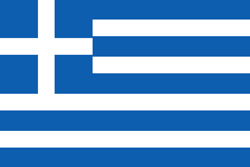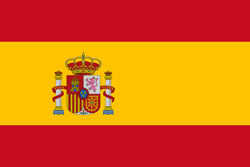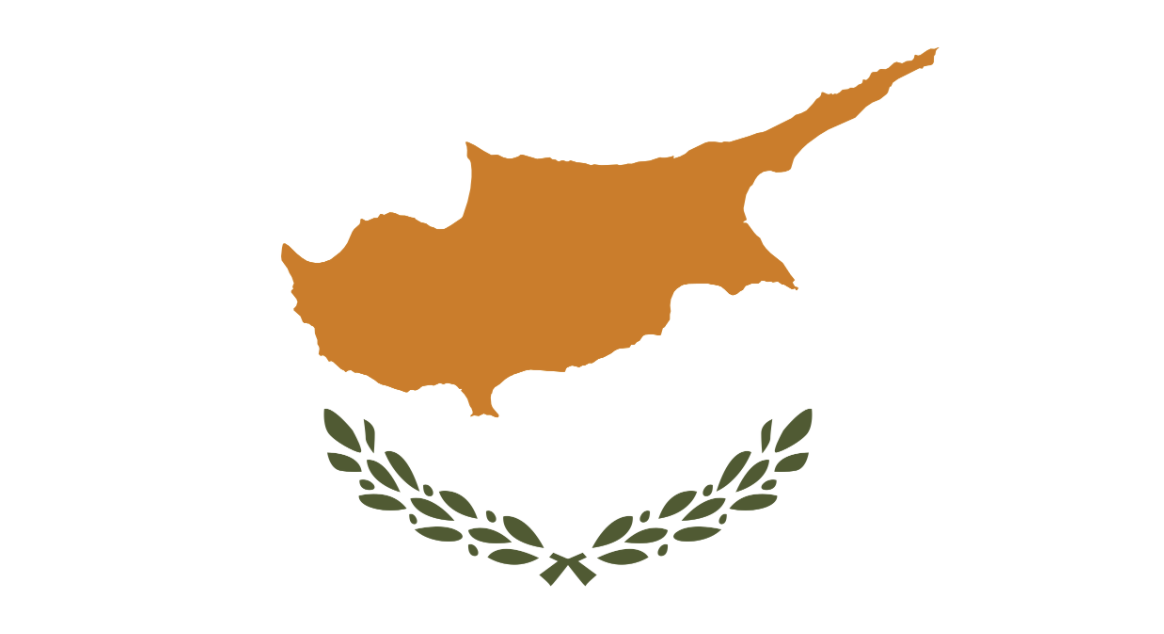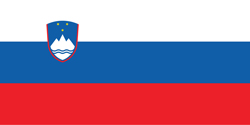Countries
IPPOG
IPPOG Forum Members
Italy

Intro
The Italian research agency dedicated to the study of the fundamental constituents of matter and the laws that govern them, under the supervision of the Ministry of Education, Universities and Research (MIUR), is the Italian National Institute for Nuclear Physics (INFN). It conducts theoretical and experimental research in the fields of subnuclear, nuclear and astroparticle physics. Groups from the Universities of Rome, Padua, Turin, and Milan founded the INFN on 8thAugust 1951 to uphold and develop the scientific tradition established during the 1930s by Enrico Fermi and his school, with their theoretical and experimental research in nuclear physics. In the latter half of the 1950s, INFN designed and built the first Italian accelerator, the electron synchrotron developed in Frascati, where its first national laboratory was set up. During the same period, INFN began to participate in research into the construction and use of ever-more powerful accelerators being conducted by CERN, in Geneva. Today INFN employs some 6000 scientists whose work is recognized internationally not only for their contribution to various European laboratories, but also to numerous research centres worldwide. All of INFN’s research activities are undertaken within a framework of international competition, in close collaboration with Italian universities on the basis of solid academic partnerships spanning decades.
As an Institution working on cutting-edge scientific issues, INFN has a significant impact on the progress of knowledge, on technological development and on the economy of the country. Aware of this role, and of the fact that it is the duty of a public body to share its activities and the results that derive from them with society, the Institute is increasingly committed to outreach and public engagement. The Institute plays an important role in the communication of physics at the national and local level, by promoting, designing and implementing initiatives for the dissemination and promotion of scientific culture, both for the general public and for specific targets. In addition to traditional initiatives, it studies and experiments new forms of communication, emphasizing the fundamental relationship between physics and other areas of knowledge. The Institute also contributes a lot to the training of high school students through scholarships, internships, teacher training and school-work projects.
Details
In Italia IPPOG è rappresentato dall’Istituto Nazionale di Fisica Nucleare (INFN). L’INFN è l’ente pubblico nazionale di ricerca, vigilato dal Ministero dell’Istruzione, dell’Università e della Ricerca (MIUR), dedicato allo studio dei costituenti fondamentali della materia e delle leggi che li governano. Svolge attività di ricerca, teorica e sperimentale, nei campi della fisica subnucleare, nucleare e astroparticellare. Le attività di ricerca dell’INFN si svolgono tutte in un ambito di competizione internazionale e in stretta collaborazione con il mondo universitario italiano, sulla base di consolidati e pluridecennali rapporti. La ricerca fondamentale in questi settori richiede l’uso di tecnologie e strumenti di ricerca d’avanguardia, che l’INFN sviluppa sia nei propri laboratori sia in collaborazione con il mondo dell’industria.
L’INFN è stato istituito l’8 agosto 1951 da gruppi delle Università di Roma, Padova, Torino e Milano al fine di proseguire e sviluppare la tradizione scientifica iniziata negli anni ‘30 con le ricerche teoriche e sperimentali di fisica nucleare di Enrico Fermi e della sua scuola. Nella seconda metà degli anni ’50, l’INFN ha progettato e costruito il primo acceleratore italiano, l’elettrosincrotrone realizzato a Frascati dove è nato anche il primo Laboratorio Nazionale dell’Istituto. Nello stesso periodo è iniziata la partecipazione dell’INFN alle attività di ricerca del CERN, il Centro europeo di ricerche nucleari di Ginevra, per la costruzione e l’utilizzo di macchine acceleratrici sempre più potenti. Oggi l’ente conta circa 6000 scienziati il cui contributo è riconosciuto internazionalmente non solo nei vari laboratori europei, ma in numerosi centri di ricerca mondiali.
JOINED: 2007
CURRENT STATUS: MEMBER
JOINED: 2017
Representative
Pierluigi Paolucci
IPPOG
Members
Mexico

Intro
México participates in several HEP laboratories around the world: CERN, Fermilab, KEK,DESY, GSI, etc., as well as some world class experiments as HAWK, Pierre Auger Labotarory, etc.
We participates in CERN´s Master Class activities, congress, workshops and several outreach activities as: Muon Day, Women Day, "Noche de las Estrellas", among others.
Details
JOINED: 2022
CURRENT STATUS: MEMBER
México participa en varios laboratorios de física de altas energías, como CERN, Fermilab, KEK, DESY, GSI, etc. Además, tiene participación oficial en experimentos de clase mundial como HAWK, Observatorio Pierre Auger, etc.
Nosotros participamos en varias actividades de divulgación científica en eventos científicos como talleres, congresos, así como eventos especiales como Muon Day, Women Day, Noche de las Estrellas, entre otras.
Representative
Arturo Fernandez Tellez
Arturo studied physics at Universidad Autónoma de Puebla, México (BUAP).
He obtained his PhD in physics at Centro de Investigación y Estudios Avanzados (CINVESTAV), CDMX, México working on particle physics phenomenology. Arturo did his postdoc at Fermilab-E791 experiment working on charmed baryon (decays, lifetime) analysis.
Then, he joined Pierre Auger Observatory working on the design and installation of the water Cerenkov tank array, and first Pierre Auger scientific publications.
IPPOG
Members
Greece

Intro
Greece has a long tradition in HEP since it has been one of the founding members of CERN. HEP research is carried out in Athens (both in the National and Kapodistrian as well as in the National Technical University), Aegean, Crete, Ioannina, Thessaloniki and in the National Research Centre “Democritos”. Experimental groups from Athens, Aegean, Ioannina and Thessaloniki participate in ALICE, ATLAS and CMS experiments.
Groups from Athens, Crete and Thessaloniki have been participati
Details
Η Ελλάδα έχει μακρά παράδοση στην Φυσική Υψηλών Ενεργειών (ΦΥΕ) αφού υπήρξε ένα από τα ιδρυτικά μέλη του CERN. Έρευνα στην ΦΥΕ διεξάγεται στην Αθήνα (τόσο στο Εθνικό και Καποδιστριακό Παν/μιο όσο και στο Εθνικό Μετσόβιο Πολυτεχνείο), στα Παν/μια Αιγαίου, Κρήτης, Ιωαννίνων, Θεσσαλονίκης και στο Εθνικό Κέντρο Ερευνών «Δημόκριτος». Πειραματικές ομάδες από Αθήνα, Αιγαίο, Ιωάννινα και Θεσσαλονίκη συμμετέχουν στα πειράματα ALICE, ATLAS και CMS.
Ομάδες από Αθήνα, Κρήτη και Θεσσαλονίκη συμμετέχουν στα Διεθνή Masterclasses από την πρώτη καθιέρωση τους. Τοπικά masterclasses και επισκέψεις σε σχολεία διοργανώνονται συχνά κατόπιν σχετικού αιτήματος τους.
JOINED: 2016
CURRENT STATUS: MEMBER
Representative
Christine Kourkoumelis
Christine Kourkoumelis is an Emeritus Professor of Physics of the National and Kapodistrian University of Athens. She holds a PhD degree in Physics from Yale University.
IPPOG
Members
Spain

Intro
The Spanish particle physics community invests a sizable effort in science outreach and promotion. Most research institutions and universities in this field carry out numerous activities, both at local level and national level. The coordination of national activities is a responsibility of the National Center for Particle, Astroparticle and Nuclear Physics (CPAN) which centralizes and manages outreach initiatives.
Both from CPAN and from the centers themselves, there is a steady participation in all the important European events and activities such as the Science Week, the European Night of Researchers, and various IPPOG masterclasses, as well as other initiatives such as "The CPAN in High Schools” a series of seminars in high schools from which thousands of students throughout Spain benefit every year.
Details
La comunidad española de física de partículas dedica un considerable esfuerzo a la promoción y divulgación de la ciencia. Las numerosas instituciones investigadoras y universidades con actividad en dicho campo realizan numerosas actividades, tanto a nivel local como de forma coordinada a nivel nacional.
Dicha coordinación recae en el Centro Nacional de Física de Partículas, Astropartículas y Nuclear (CPAN) que centraliza y gestiona las iniciativas de divulgación. Tanto desde el CPAN como de los propios centros se participa habitualmente en todos los eventos y actividades europeas más importante como la Semana de la Ciencia, la Noche Europea de los investigadores, y diversas masterclasses IPPOG, así como otras iniciativas propias como “El CPAN en el Instituto” un ciclo de seminarios en institutos de secundaria del que cada año se benefician miles de estudiantes en toda España.
JOINED: 2016
CURRENT STATUS: MEMBER
Representative
Jesús Puerta-Pelayo
IPPOG
Members
Romania

Intro
The particle physics community in Romania is centred around CERN collaborations, carried out by physics institutes and major universities in the country (mainly: Bucharest, Cluj, Iasi, Timisoara).
The promotion of physics, of exact sciences and communication with society are important missions of these entities.
"Particle Physics Masterclasses" is the most prestigious action we do for high school students and offers us excellent feedback.
Details
JOINED: 2016
CURRENT STATUS: MEMBER
Comunitatea de Fizica Particulelor din Romania este centrata in jurul colaborărilor CERN, efectuate de institutele de fizica si universitățile mari din tara (in principal: București, Cluj, Iași, Timișoara).
Promovarea fizicii, a științelor exacte si comunicarea cu societatea sunt misiuni importante ale acestor entități.
"Particle Physics Masterclasses" este acțiunea cea mai prestigioasă pe care o organizăm pentru elevi de liceu si ne oferă un feed-back excelent.
JOINED: 2016
CURRENT STATUS: MEMBER
Representative
Paul Gravila
After graduating in Physics from the University of Timisoara (that's my home town) (BSc), University of Bucharest (MSc), I was a doctoral student at the University of Zurich, Switzerland, and received the PhD degree in 1998. Back home in Timisoara, I held many courses in different disciplines such as Nuclear Physics, Elementary Particle Physics, Quantum Mechanics, Computational Physics, Numerical Methods, Detectors, Dosimetry and Radioprotection. In 2013 I joined the Romanian ATLAS Cluster.
IPPOG
Members
Australia

Intro
Australia has several active particle physics groups (University of Adelaide, University of Melbourne, Monash University, University of Queensland, University of New South Wales and University of Sydney).
Members of these groups contribute to several experiments such as ATLAS, Belle/Belle II, COMET, Ice Cube, LHCb along with various direct dark matter searches, and are working towards the realisation of future facilities (CEPC, EIC, FCC, ILC). There is also a vibrant theory community with members throughout the country providing input to their experimental colleagues and working on theoretical understandings and expansions of the Standard Model.
Details
JOINED: 2016
CURRENT STATUS: MEMBER
Representative
Jackie Bondell
Jackie Bondell is the Education and Outreach Coordinator for both the ARC Centre of Excellence for Dark Matter Particle Physics and the ARC Centre of Excellence for Gravitational Wave Discovery (OzGrav) and is based in Melbourne, Australia.
IPPOG
Members
Cyprus

Intro
Details
JOINED: 2021
CURRENT STATUS: MEMBER
JOINED: 2021
CURRENT STATUS: MEMBER
Representative
Fotios Ptochos
IPPOG
Members
India

Intro
Details
JOINED: 2021
CURRENT STATUS: MEMBER
JOINED: 2021
CURRENT STATUS: MEMBER
Representative
Bedangadas Mohanty
Bedangadas Mohanty is a Professor of Physics at the School of Physical Sciences, NISER, Bhubaneswar. He is currently the spokesperson of the India-ALICE-STAR Collaboration. He was a Scientific Associate at the experimental physics division, CERN working in ALICE. He is a member of the SuperCDMS collaboration for dark matter search. Bedangadas did his Masters from Utkal University, Bhubaneswar (1996), Ph.D. from Institute of Physics, Bhubaneswar (2002), and Postdoc at Lawrence Berkeley National Laboratory, USA. He was at the Variable Energy Cyclotron Centre, Kolkata during (2002-2012).
IPPOG
IPPOG Forum Members
France

Intro
In France, introducing young people and the general public to basic science (nuclear physics, physics of elementary particles, cosmology and astrophysics), the technological advances they require and their related applications (energy, health, etc.), is a key mission for the 25 CNRS/IN2P3 national research laboratories and platforms, and the CEA/IRFU. Our educational and outreach activities are carried out in close collaboration to teaching staff and take many forms: visit to laboratories, “Masterclass” discovery days, teacher-training courses, loans of cosmic-ray detectors for use in classrooms, teaching aids, exhibitions, websites, virtual visits, audiovisual productions, books, etc.
Our goal: to give people a taste for science and physics
Details
JOINED: 2016
CURRENT STATUS: MEMBER
LOCAL RESOURCES WEBSITE(S)
CNRS/IN2P3 Outreach and Communication Page
En France, la diffusion vers les jeunes (élèves ou étudiants) et le grand public de branches de la recherche fondamentale (physique nucléaire, physique des particules, cosmologie et astrophysique), des avancées technologiques qu’elles nécessitent et de leurs applications sociétales (dans le domaine de l’énergie, de la santé, etc.) est une mission clef des 25 laboratoires de recherche et plateformes nationaux du CNRS/IN2P3 et du CEA/IRFU. Nos activités pédagogiques et de vulgarisation se déroulent en partenariat avec les enseignants et prennent des formes très différentes : visites de laboratoire, journées de découverte « Masterclasses », formations d’enseignants, prêts de détecteurs pédagogiques de muons cosmiques utilisés en classe, supports d’enseignements, expositions, sites internet, visites virtuels, production de contenus audio-visuels, livres, etc.
Notre but : donner aux gens le goût de la science et de la physique
JOINED: 2016
CURRENT STATUS: MEMBER
Representative
Pierre Van Hove
IPPOG
Members
Slovenia

Intro
Slovenia has been involved with various big particle physics projects almost as long as it has been a country. Indeed, the first collaboration agreement between CERN and Slovenia dates back to the same year (1991). However, Slovenian physicists were already involved with various particle physics experiments before that time. Nowadays, Slovenian scientific institutions collaborate with the ATLAS experiment at CERN, experiments Belle and Belle II at KEK, and observatory Pierre Auger. Slovenian physicists also organise various Masterclasses, science shows, talks and open days for high-school students, as well as co-coordinate Slovenian Teacher Programmes in connection with CERN.
Details
JOINED: 2016
CURRENT STATUS: MEMBER
Slovenija se v svet fizike delcev vključuje skoraj od prvega dne samostojnosti. Prvi sporazum med Slovenijo in CERNom je bil tako sklenjen že leta 1991. Slovenski fiziki pa so bili v razne eksperimente fizike delcev po svetu vključeni že pred tem. Danes razne slovenske raziskovalne institucije v fiziki delcev sodelujejo z eksperimentom ATLAS v CERNu, eksperimentoma Belle in Belle II v KEKu in observatorijem Pierre Auger. Poleg tega slovenski fiziki in fizičarke organizirajo različne Masterclass-e, znanstvene predstave, predavanja in dneve odprtih vrat za dijake in dijakinje. V sodelovanjem s CERNom pa organizirajo tudi programe za slovenske učitelje in učiteljice.
JOINED: 2016
CURRENT STATUS: MEMBER
Representative
Anja Kranjc Horvat
Anja works as Educational Researcher at EPFL. She has been a senior fellow at CERN, where she was developing science shows on particle physics, modern technology, and data science for the upcoming Science Gateway. In 2022, she's also completing her PhD at the University of Potsdam, Germany, which focused on particle physics for high-school teachers and students. The main outcomes of her PhD are an expert concept map of particle physics for high-school education, and several recommendations for future developments in particle physics high-school and teacher training curricula.

